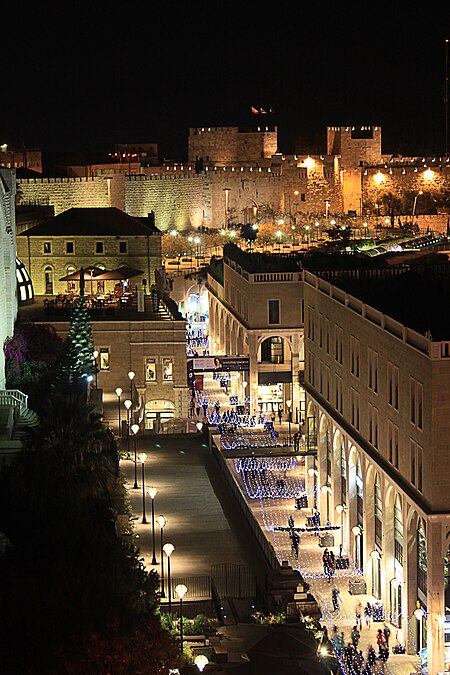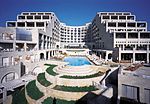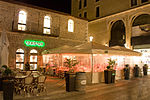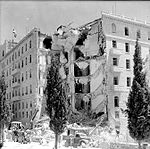Mamilla
19th-century establishments in Ottoman SyriaCentral business districtsMamillaNeighbourhoods of JerusalemPlanned developments ... and 2 more
Populated places established in the 19th centuryShopping malls established in 2007

Mamilla (Hebrew: ממילא) is a neighbourhood of Jerusalem that was established in the late 19th century outside the Old City, west of the Jaffa Gate. Until 1948 it was a mixed Jewish-Arab business district. Between 1948 and 1967, it was located along the armistice line between the Israeli and Jordanian-held sector of the city, and many buildings were destroyed by Jordanian shelling. The Israeli government approved an urban renewal project for Mamilla, apportioning land for residential and commercial zones, including hotels and office space. The Mamilla Mall opened in 2007.
Excerpt from the Wikipedia article Mamilla (License: CC BY-SA 3.0, Authors, Images).Mamilla
David HaMelekh, Jerusalem Nahalat Shiva
Geographical coordinates (GPS) Address Nearby Places Show on map
Geographical coordinates (GPS)
| Latitude | Longitude |
|---|---|
| N 31.776116666667 ° | E 35.223455555556 ° |
Address
David HaMelekh
9419008 Jerusalem, Nahalat Shiva
Jerusalem District, Israel
Open on Google Maps











